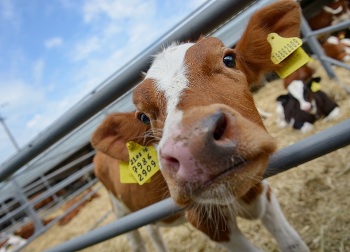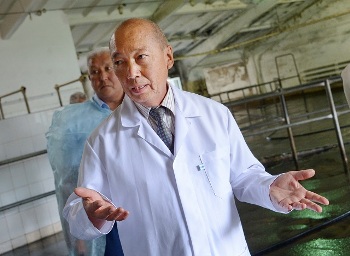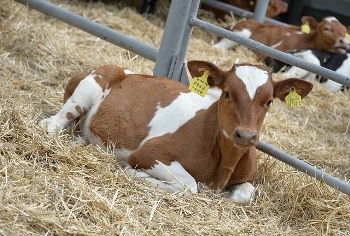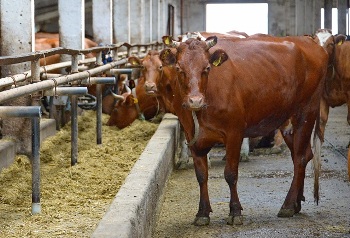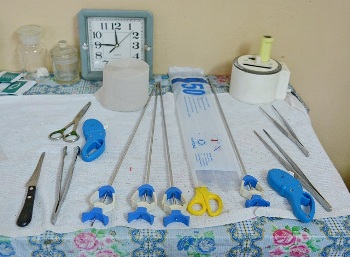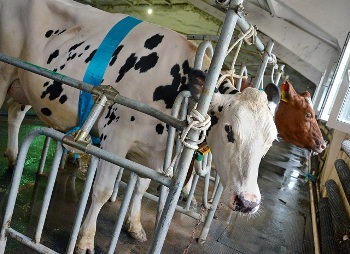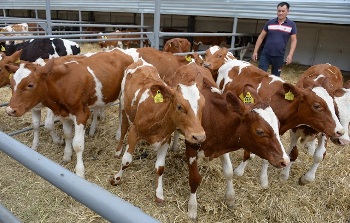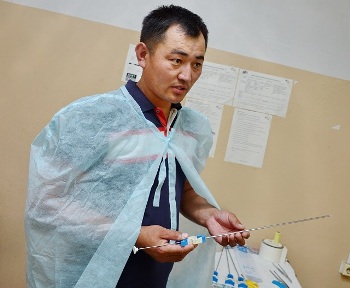Scientists from Pavlodar State University are introducing the technology of transplantation of cattle embryos in large farms of the region to obtain offspring.
As the management of agriculture explained, the technology is designed for multiple embryo transfer to female recipients from cows that produce large quantities of milk.
“With superovulation from a cow, up to 70 embryos can be obtained per year. Then, with a survival rate of 50 percent of a cow, 35 calves can be obtained annually, and when using same-sex seed, only heifers”, explained Aidos Zhakupov, chief specialist of the regional management of agriculture.
The embryos of the record cow are transplanted to surrogate mothers. Thus, it is possible not only to increase the offspring in production, but also to preserve the genetic material from the productive parents.
According to the management of agriculture, PSU scientists conducted experiments at “Galitskoe” and “Pobeda” LLP, in the first 18 calves were received from 34 embryos, in the second, 15 out of 26, and 19 calves of Holstein-Friesian breed out of 38 took root. This year the farm “Vilgelm” joined the project, seven calves are expected to appear on the farm by the autumn.
- At “Pobeda” LLP, about 20 more calves are expected by the end of the year. They are all - descendants of record-holders; they will produce not five thousand liters of milk per year, but eight or nine”, the dean of the Faculty of Agricultural Technology of PSU, Toktar Bekseitov said. - The farm bred Simmental breed, it is good, it gives about six thousand liters of milk per year. Although the area milks 2700-3000 liters per year. The director of the LLP purchased the Holstein breed in the autumn of 2018. If our cattle gives 20–30 liters per day, the Holsteins give 30–50 liters. From them we now take embryos, transplant them to local cows, this is how the acclimatization goes. As the professor notes, in the region the survival rate of embryos is 70%, in the world it is 50%.
We recall that PSU employees won a grant from the World Bank under the program “Stimulating Productive Innovations” - 25 million for three years. Scientists purchased hormones, embryo storage liquid, equipment for the money received.
Now in the region, transplantation is carried out in four farms. In the future, scientists hope to increase the number of applications.
- They give us a request that they would like to have a transplantation. The research team is studying the herd of the farmer, is there a good record-holders, from which it is desirable to get more calves. We select them, prepare surrogate mothers. Preparation takes about two weeks. We transplant, in two months we do a rectal examination - whether the embryo established or not, - Toktar Bekseitov shared the algorithm.
For each embryo established by the scientists, the farm pays 50 thousand tenge, in turn, farmers receive subsidies from the Ministry of Agriculture of the Republic of Kazakhstan - 80 thousand tenge per one newborn.
Olga Bugaeva
Photo by the author Рavlodarnews.kz







